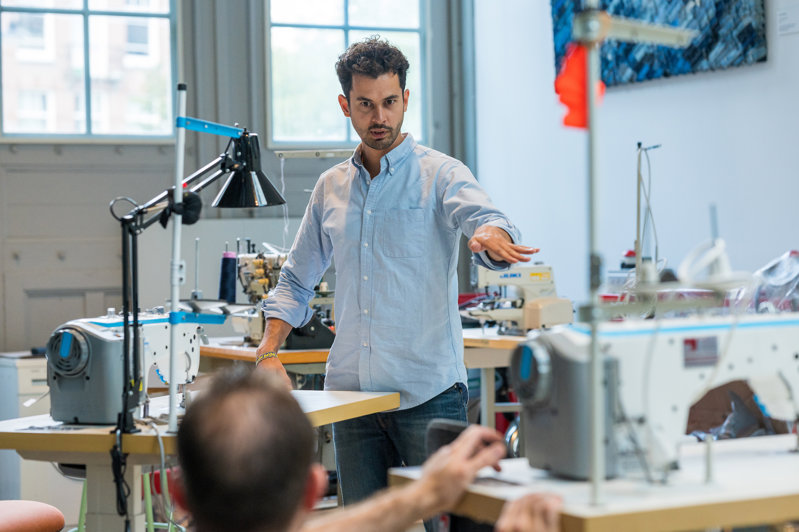The Netherlands of Tomorrow
For many people, pension is something for tomorrow. The pension system is changing; this is a fact. But what does this mean for our society? What does the Netherlands of tomorrow look like? We asked people from a cross-section of society. In this episode: Thami Schweichler, founder of Makers Unite, a social enterprise that offers employment opportunities to people with a refugee or migration background. “In the Netherlands of Tomorrow, everyone should have equal opportunity.”
In the Netherlands, we hate waiting. We consider five minutes at a bus stop to be wasted time. Fortunately, we have our smartphones so we can quickly send a text or a tweet or watch a video. Refugees sometimes have to wait for seven years before they receive residency status in the Netherlands and the ability to go on with their lives. Seven years in the waiting room, before they are allowed to “enter” and start working. If they can even find a job. They are on the sidelines, along with over a million other people in the Netherlands: Seniors, people with little or no education, and people with a migration background. Thami Schweichler wants to help build an inclusive society in which everyone can participate. He founded Makers Unite to give newcomers in the Netherlands their confidence back, both in themselves and in their future, and to help them get jobs.
What do you hope the Netherlands of tomorrow will look like?
“I hope everyone will have equal opportunities to use their talents. Compared to developing countries, the Netherlands is a prosperous country, and everything is organized very well here. But for newcomers, the start can be difficult. They come here with their dreams and ambitions, but then often get stuck in all kinds of complicated systems and procedures. After ten years in the Netherlands, half of the people with refugee status still don’t have a steady job. That is a missed opportunity, both for the newcomer and for our economy: in an aging society, we can really use their talents. If we become more inclusive as a country, that will also increase our economic potential.”
How do we do that: become more inclusive?
“It starts with trust. Newcomers first need to gain back their own self-confidence to be able to build a future here. At Makers Unite we help people see what their strengths are and how they can use them. So far, we have guided a hundred and sixty people in a six-week process. Nearly seventy percent of them had an internship, job or education program at the end of that. We make sustainable products, such as laptop covers made from the lifejackets of refugees. Making a cover like that is also a way to bring people closer together, to create connections. Because society also needs to gain trust in the newcomers. They often feel like they are only seen as refugees and not as individuals with their own story, identity and capacities. For ice cream manufacturer Ben & Jerry’s we therefore designed a clothing line called Meet Me Halfway. The message: as a refugee or migrant, we have come so far; let’s meet halfway and continue on together.”
